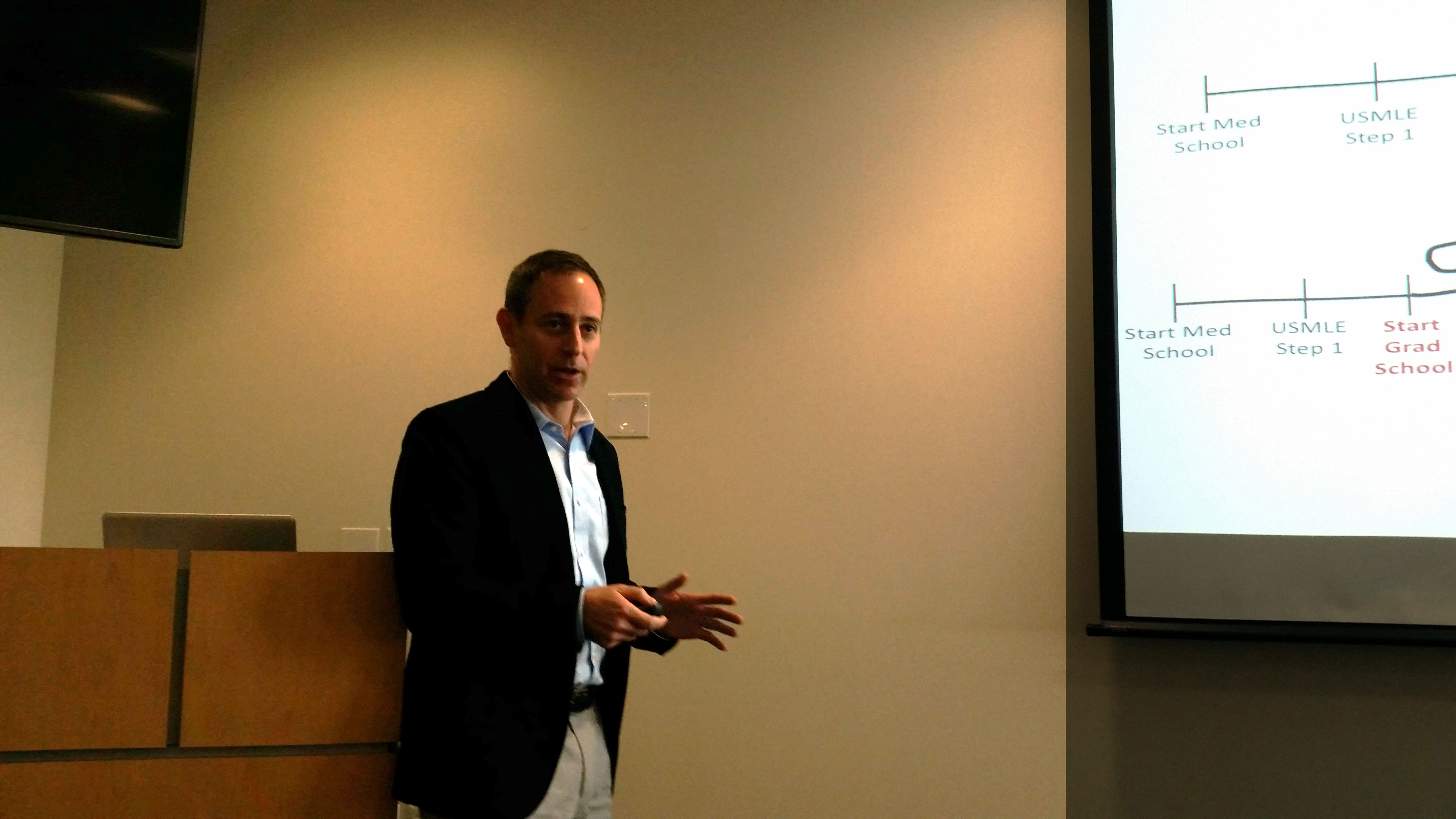The path to becoming a physician-scientist is a long and arduous one, but the rewards are greater than any hardship. This was the lesson from the keynote speaker at the 2016 Office of Physician-Scientist Career Development Colloquium, Michael Rosenblum, MD, PhD, an immunologist and assistant professor of Dermatology at the University of California, San Francisco (UCSF). Rosenblum, a rising star in both dermatology and immunology, has been recognized as one of the most exceptionally-promising young physician-scientists by the National Institutes of Health (NIH), receiving one of a very small number of the prestigious NIH Director’s New Innovator Awards in 2014. “I am delighted that our Office was able to sponsor Dr. Rosenblum’s visit, and that the Colloquium series we began several years ago has proven so successful. Meeting an investigator who has achieved so much so early in his career is important for our physician-scientist trainees” says Dr. Andrew Arnold, head of the Office of Physician-Scientist Career Development. “The successes of a speaker like Dr. Rosenblum are something all of our trainees can aspire to.”

Speaking to MD/PhD students at UConn Health and meeting with faculty throughout his visit, Rosenblum stressed the potential of the physician-scientist to drive innovation and new discovery in the eternal quest to improve human health. In his keynote address, “To Be a Physician-Scientist: the Good, the Bad, and the Amazing,” he shared his career journey and advice for the young physician-scientists in the audience.
One topic Rosenblum devoted much of his address to was mentorship. Mentors, and the choice thereof, are critical for trainee success. However, the characteristics that make a good mentor can change as physician-scientists advance in their careers. One of Rosenblum’s key points was that the choice of mentor for the postdoctoral fellowship period should include the topic the mentor studies. In earlier stages (such as a PhD mentor), the specific research topic of a mentor is not a deal breaker, and choosing a mentor who is skilled at mentoring trumps choosing a mentor who works on a field you consider to be the most interesting. For the postdoctoral fellowship, topic is much more important. This is the stage where a young physician-scientist will launch his or her research career, and choosing a mentor whose topic fits with your research interests will help your career launch in the direction of your own interests.
Success, and how to define it, was also a topic of Rosenblum’s address. In advocating for a broadly inclusive definition, Rosenblum spoke of a physician-scientist a few years ahead of him at UCSF who had been on the path to a career as a leading basic science researcher in her field, with multiple publications in prestigious journals. For a variety of reasons, her career went in a different direction, and she no longer oversees a basic science research program. As Rosenblum put it, today “she runs a residency program at UCSF and is a renowned clinician and teacher. No one would consider her a failure as a physician-scientist, even though she has left the basic science research realm.”
Throughout his talk, Rosenblum also spoke of the inspiration he derives from his patients. His clinical practice focuses on inflammatory diseases of the skin, chronic and debilitating conditions that significantly reduce quality of life and have few effective therapies. While his lab is mostly devoted to basic science, about 30 percent of his work is translational and arises directly from what he sees in his dermatology practice. These patients remind him of why he became a physician and a scientist, and inspire him to continue to pursue solutions to important scientific and medical questions. For the physician-scientist trainees in the audience, Rosenblum’s example was similarly inspiring, and an example of where they too could be in just a few short years.



